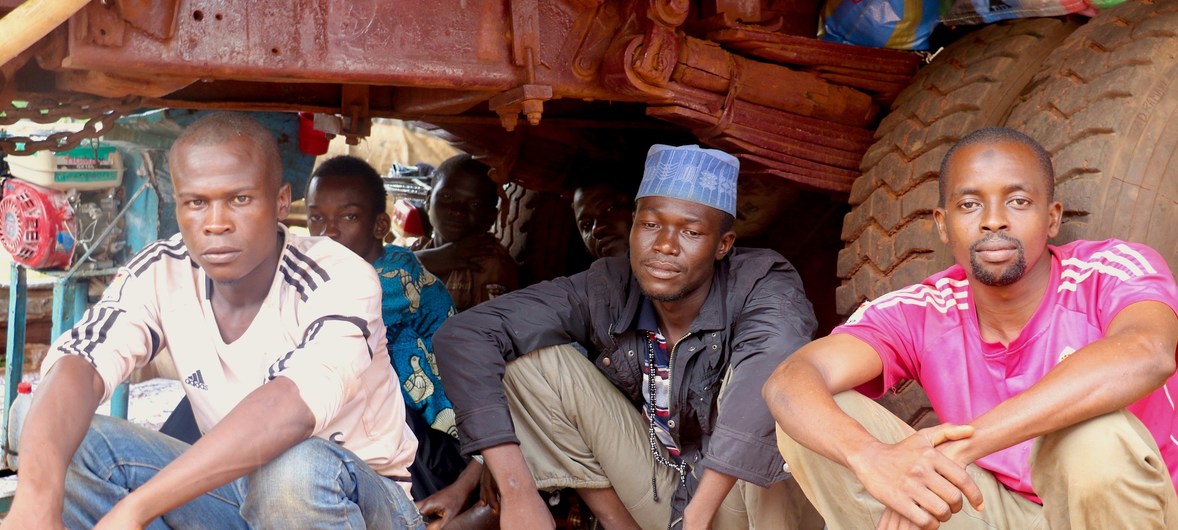
The Central African Republic (CAR) has called on the United Nations labour agency to provide special assistance to the conflict-torn nation and make it a “pilot-country” for the implementation of a programme to build peace and resilience through job creation.
“Creating income- and wealth-generating jobs is essential in order to consolidate peace and reinforce resilience” in the country, CAR’s President, Faustin Archange Touadéra, said in a keynote address during the World of Work Summitconvened in Geneva by the International Labour Organisation (ILO).
Entitled ‘Employment and Decent Work for Peace and Resilience,’ this year’s Summit highlighted the importance of employment and decent work for peace and resilience, with a specific focus on tackling the realities on the ground and on partnerships that can achieve real results.
Fighting between the mostly Christian anti-Balaka militia and the mainly Muslim Séléka rebel coalition has plunged the CAR into civil conflict since 2012. A peace agreement was reached in January 2013, but rebels seized the capital, Bangui, in March of that year, forcing the country’s former president, François Bozizé, to flee.
President Touadéra highlighted the challenges of restoring an economy ruined by years of conflict, and invited the ILO to send a high-level technical mission to the country’s capital Bangui, with a view to help resolve employment and decent work issues.
This would involve reinforcing governance capacities, establishing a working social protection system, promoting social dialogue and women’s employment, as well as putting in place an innovative partnership for employment promotion, he said.
Outlining the gravity of the crisis in his country, Touadéra said that reducing unemployment, especially for youth, was a priority, to better fight against poverty and risks of radicalization.
“The economy of survival has taken over the formal sector,” he said, underlining that the informal employment now represents more than 75 per cent of national economic activity.
He said that employment is “a determining factor for a lasting peace” but “the battle to promote employment and decent work in favour of peace and resilience is a daily challenge.”
In his welcoming address, ILO Director-General Guy Ryder underlined the strategic location of the CAR in the sub-region.
“By recognizing the link between work and peace, your main priority is to bring jobs for the people of the Central African Republic to help them reach a decent standard of living,” Mr. Ryder said.
Also addressing the Summit was the President of Ireland, Michael D. Higgins, who said that the ILO “retains the potential to be one of the international organisations best equipped to assist nations and their peoples to build resilience and prevent conflict.”
“Ever since its inception, the International Labour Organisation has been dedicated to the proposition that peace can only be built, and can only be sustained, when it is founded on a just and equal economic order, one capable of meeting the needs and aspirations of all people, in their diversity,” said Mr. Higgins in a keynote speech.
Mr. Higgins said that expanding economic opportunities, ensuring the recognition of fundamental social and economic rights, advocating, advancing and achieving decent work, and facilitating social dialogue between workers, employers and civic organisations, are critical components of recovery from conflict and the prevention of any return to war.
Welcoming an ambition to place ILO at the centre of efforts to create a new global architecture for sustaining peace, he stressed sufficient and effective investment in rights-based peacebuilding programmes will not only save lives, but will offer to the peoples of the world all of the possibilities for development and human flourishing that peace can bring.
Speaking during a panel discussion, UN High Commissioner for Refugees Filippo Grandi said: “The refugees and displaced people, almost 70 million of them around the world today, are the outcome of a failure of peace. And if, among other things, their ability to be respectfully and gainfully employed is not met, then they will continue to be a factor for instability.”
